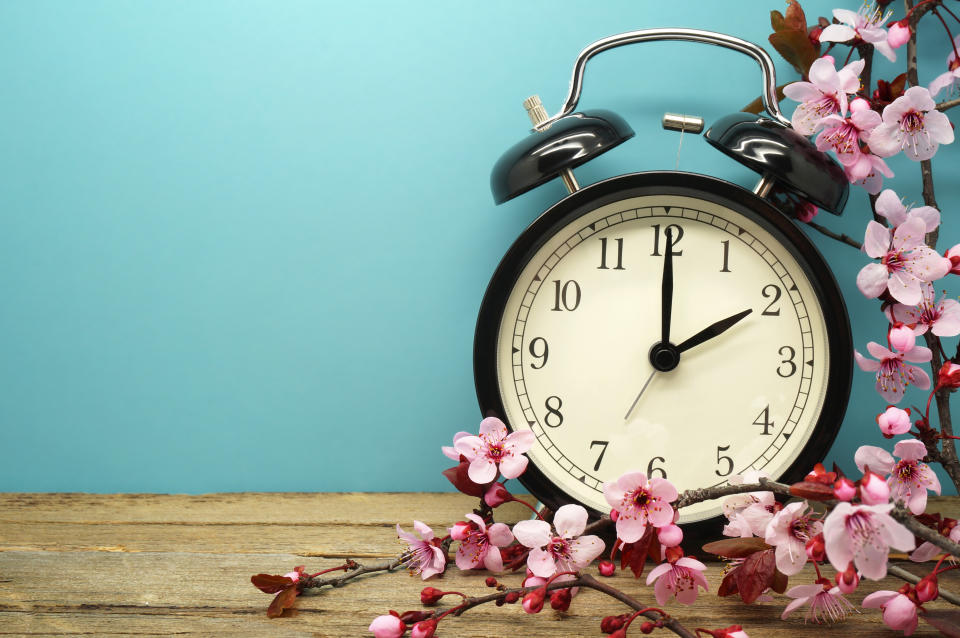The dangerous impact daylight savings can have on your body
It’s that time of year again where we all complain about losing an hour of sleep when the clocks turn forward for daylight savings this weekend on October 7.
But while we rejoice at the thought of longer evenings and the illusion of having more time in the day, losing just that one hour of sleep can actually have a huge impact on your body.
That lost hour of sleep may play a bigger, perhaps more dangerous role in our body’s natural rhythm, according to a study led by the University of Michigan Frankel Cardiovascular Center.
The shocking results of the research showed that switching over to daylight saving time, and subsequently losing one hour of sleep, actually increased the risk of having a heart attack the following day by 24 percent.

“The basic principle is that our internal body clocks are synchronised to light,” Dr Peter Eastwood, President of the Australasian Sleep Association and Professor at the University of Western Australia, tells Yahoo Lifestyle.
“Light is the biggest stimulus to keep our body clock online. So if all of a sudden you change the clock outside of that and the timing between light and dark, sleep and wake changes, your body needs time to adjust.”

Dr. Cathy Goldstein, an assistant professor of neurology at the University of Michigan School of Medicine Sleep Disorders Center, said that change in someone’s sleep pattern does interrupt their circadian rhythm.
“You take somebody who’s very sleepy when they get up at 6am, and then they get up at 6am during Daylight Saving Time, and for them that’s physiologically 5am,” Cathy told Time magazine.
“That’s a big problem, because you’re waking up at a time when the circadian system is not yet promoting alertness. It’s still pushing for that sleepiness.”
In the US daylight savings kicks in on a Monday, so the study took into account that heart attacks historically occur most often on Monday mornings, maybe due to the stress of starting a new work week and inherent changes in our sleep-wake cycle.
“With daylight saving time, all of this is compounded by one less hour of sleep,” Dr. Amneet Sandhu, a cardiology fellow at the University of Colorado in Denver who led the study, said.
“Our study suggests that sudden, even small changes in sleep could have detrimental effects.”

This impact was seen in a comparison of hospital admissions from a database of non-federal Michigan hospitals. It examined admissions before the start of daylight saving time and the day immediately after, for four consecutive years.
Dr Sandhu examined about 42,000 hospital admissions in Michigan, and found that an average of 32 patients had heart attacks on any given Monday. But on the Monday immediately after springing the clock forward, there were an average of eight additional heart attacks, he said.
By contrast, heart attack risk fell 21 percent, on the day after the clock was returned to standard time, and people got an extra hour’s sleep.
Dr Eastwood however does stress that our bodies are very capable of dealing with that one hour shift, and the effect it generally has on the body is very small.
“If there is any affect on things like heart attacks and depression, and a few other studies that have shown changes in behaviour, physiology and mood, with a one hour shift, they are very small,” Dr Eastwood tells us.
“For most people, the human body is capable of shifting an hour every day. A good example of that is switching time zones. Normally when we travel it takes us a couple of days for our body clock to adjust. But we do that regularly. So the chances of that one hour shift in the body clock having a major effect on your health is very small.”

The clock typically moves ahead in the spring, so that evenings have more daylight and mornings have less, and returns to standard time in autumn.
Daylight saving time was widely adopted during World War I to save energy, but some critics have questioned whether it really does so and whether it is still needed.
Got a story tip? Send it to tips@oath.com
Want more lifestyle and celebrity news? Follow Yahoo Lifestyle on Facebook, Twitter and Instagram.

 Yahoo Lifestyle
Yahoo Lifestyle 


